Cards FOR Humanity: 'we care' Community Mental Health Careboxes
What do you get when you combine PostSecret, Little Free Libraries, and Cards Against Humanity? ..."we care" Community Mental Health Careboxes: A #HackMentalHealth hackathon project focused on lowering the threshold for your first mental health experience.
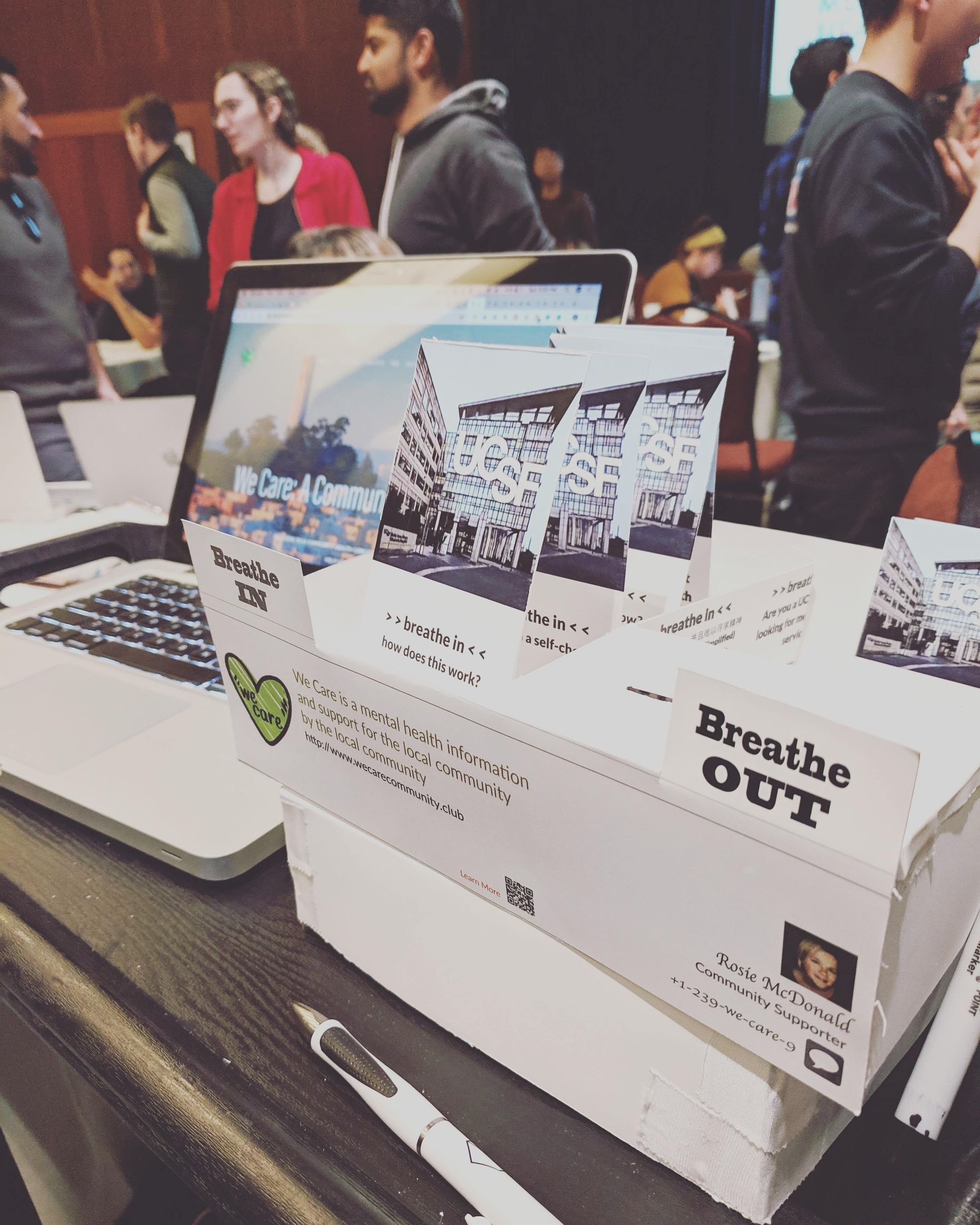
At the #HackMentalHealth UCSF hackathon last month, over 500 people formed 60 teams to build creative solutions addressing mental health issues. Solutions using VR, chatbots, and many other technologies aimed to tackle this compelling hackathon prompt:
Mental Health Today
In the current century, mental health has become one of the biggest challenges our nation faces. According to the National Alliance on Mental Illness:
1 in 5 U.S. adults experiences mental illness in a given year.
Suicide is the second leading cause of death in the U.S. for people aged 15–24.
46% of homeless adults live with severe mental illness and/or substance abuse disorders.
Addressing The First Step
My team decided to focus on one consistently hard to tackle problem in this space:
How can we reduce the anxieties and barriers to your first mental health experience?
This first experience might be anything from trying to book a new patient appointment with a therapist, finding free mental health services in your community, or even something as simple as being comfortable expressing a vulnerability.
Joyable, Two Chairs, and other companies are creating digital solutions to book your first (or next) mental health appointment with therapists, but we wondered: How do we reach people in their local communities if they don't have exclusive access to a computer or phone? How can we encourage someone to share something about themselves with someone else (shared vulnerabilities), or even with themselves (self-reflection)?
Even digital health apps, mental health related or not, are typically unprepared to help users working through an acute mental health issue find local services. Users onboard into the app too late in the process, sometimes with suicidal thoughts, and the apps lack the ability to connect users to real support systems in their communities.
Looking at it from a product perspective, a lifetime value analysis of a mental health system user must consider the journey it takes to acquire them. Users need assistance in product discovery and thoughtfully crafted ways to overcome their habits and anxieties. Downloading a mental health app or booking an appointment with a therapist is often:
- the culmination of several incremental steps, perhaps starting from unexpressed feelings and an ultimate desire for clearer belonging and self-actualization
- a build up to an acute predicament or mental health incident
- a big first step for a user that hasn't interacted at all with the mental health system before
Consider this scenario: A user finally decides a mental health issue is acute enough that they get the courage to explore mental health benefits from their insurance provider or local government services. They get access to a computer or phone to get a list of therapists available. The list is long, but only a few say they are accepting new patients. The user then calls each of these therapists one by one, only to find out the first appointment is always 2+ months away. They give up after the 3rd call and are left to deal with their mental health issue on their own.
This is a horrible user experience and on-boarding process. A product/growth manager in any other business would stop all other activity and focus their energy on fixing the product to address the first stages of this broken funnel.
Inspiration and Precedent
Our solution was inspired by several successful products and projects in adjacent spaces:
PostSecret is a community driven project that collects people's secrets mailed in by postcard and anonymously shares highlights of these online every Sunday.
- Running since 2005, nearly two decades
- At one point was the 10th most popular site among female students, with over 7% naming it their favorite site
- Millions of secrets have been shared in postcard and digital form
- Raised over $1 million for suicide prevention
(stats collected from https://en.wikipedia.org/wiki/PostSecret)
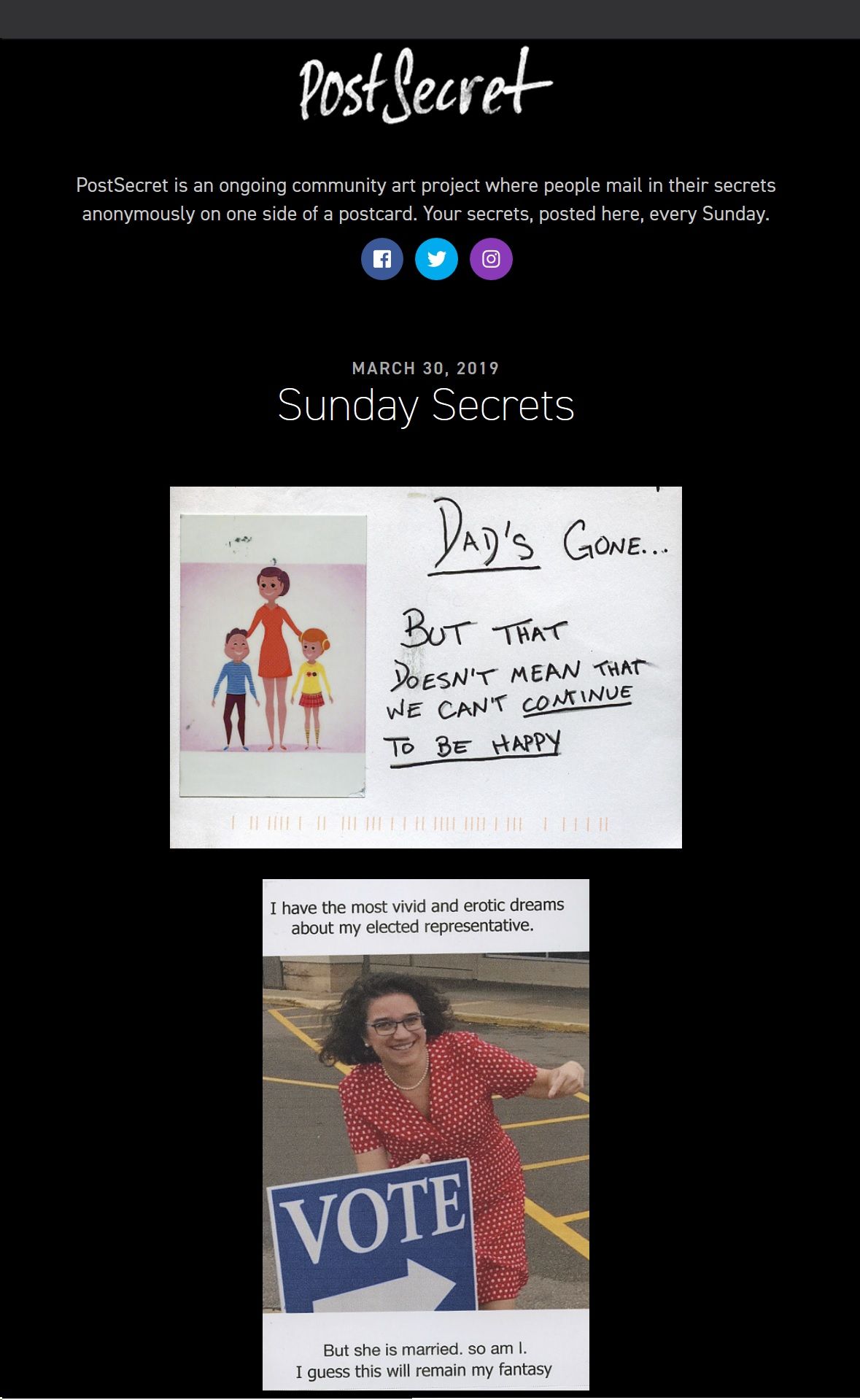
While not billed as a mental health service, PostSecret's anonymous submission model has given people a comforting low bar to the first actions of self-reflection and external communication. The anonymous display of these expressions fosters community building from shared experiences. PostSecret has utilized this success to hook into the mental health system via fundraising for, and promotion of, national suicide hotlines.
Little Free Library is a non-profit, community driven, project that allows anyone to create, register, and steward a pop-up library. Its goals are to promote a love of reading and local community building by fostering neighborhood book exchanges around the world (take-a-book, leave-a-book model).
- Running since 2009
- 80,000+ libraries located across 90+ countries
- 120 million estimated book shares amongst neighbors
(stats collected from: https://littlefreelibrary.org/10years/)

The scale this project has reached is a testament to people's desires to engage with their local community around a common cause. Like PostSecret, it also focuses on reducing the barrier to first action; in this case, a person's first interaction with reading:
Academically, children growing up in homes without books are on average three years behind children in homes with lots of books, even when controlled for other key factors. (M.D.R Evans et al, Research in Social Stratification and Mobility, June 2010)
One of the most successful ways to improve the reading achievement of children is to increase their access to books, especially at home. But 61% of low-income families do not have any age-appropriate books for their kids at home.
(from https://littlefreelibrary.org/about/)
The build-it and manage-it yourself model allows this project to scale organically. The community library box is purposefully approachable and interaction with the box is done on the user's terms, affording the space to consume or contribute to it without judgement.
Cards Against Humanity is a free open-source style card game, in which anyone can download the game as a pdf template, print it, cut out cards, and customize it before gameplay.
- Started in 2010 on kickstarter
- Over 1.5 million downloads in 3 years
- Over $12 million in revenue in 3 years from people who choose to buy the game pre-packaged
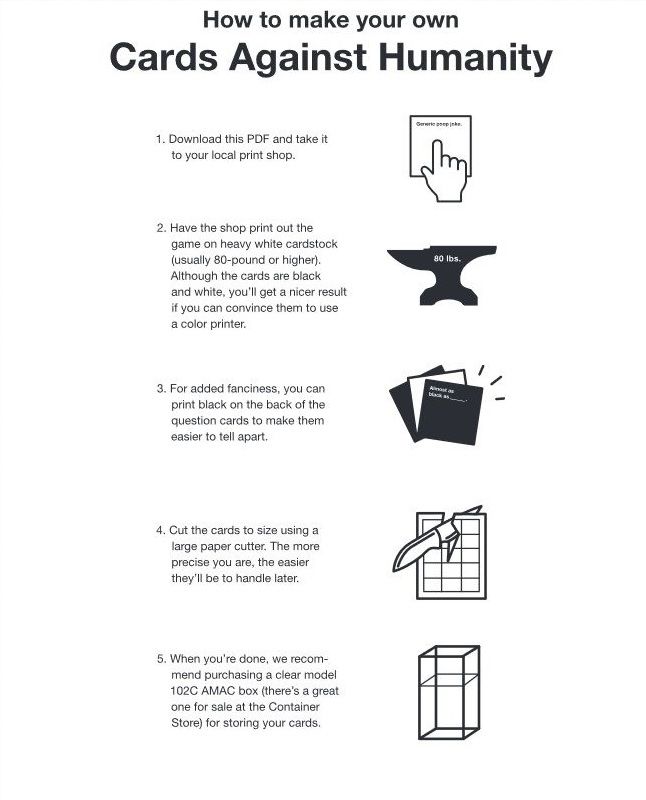
This case study ties less into mental health and more into the model of download, print, and customize physical content at scale. (Though, bringing people together in real life to laugh is certainly good for our mental health).
Goals
Our team's goal is to build a tool to help users navigate their mental health journey from thoughts to action. While not specifically designed to make revenue, our product's goal is to acquire more active users into the mental health system as early as possible.
As described above, projects like PostSecret, Little Free Library, Cards Against Humanity, and ask.fm show 'product-market-fit' in adjacent areas. Our solution draws from these successful projects to:
- lower the barrier for the first mental health interaction
- improve access to all communities (digital or not)
- build upon PostSecret by letting users anonymously consume information in a judgement free, safe-space
Hackathon
Our four person team consisted of a good mix of two experienced product + engineering professionals, two computer science undergrad students, and one undergrad student who also works as a behavioral therapist.
We collaboratively edited a Google Doc to first diverge on the related problem spaces and user needs and then converge on areas to focus on: hybrid digital/non-digital access, community building, anonymous safe-spaces, actionable localized information, open-source model.
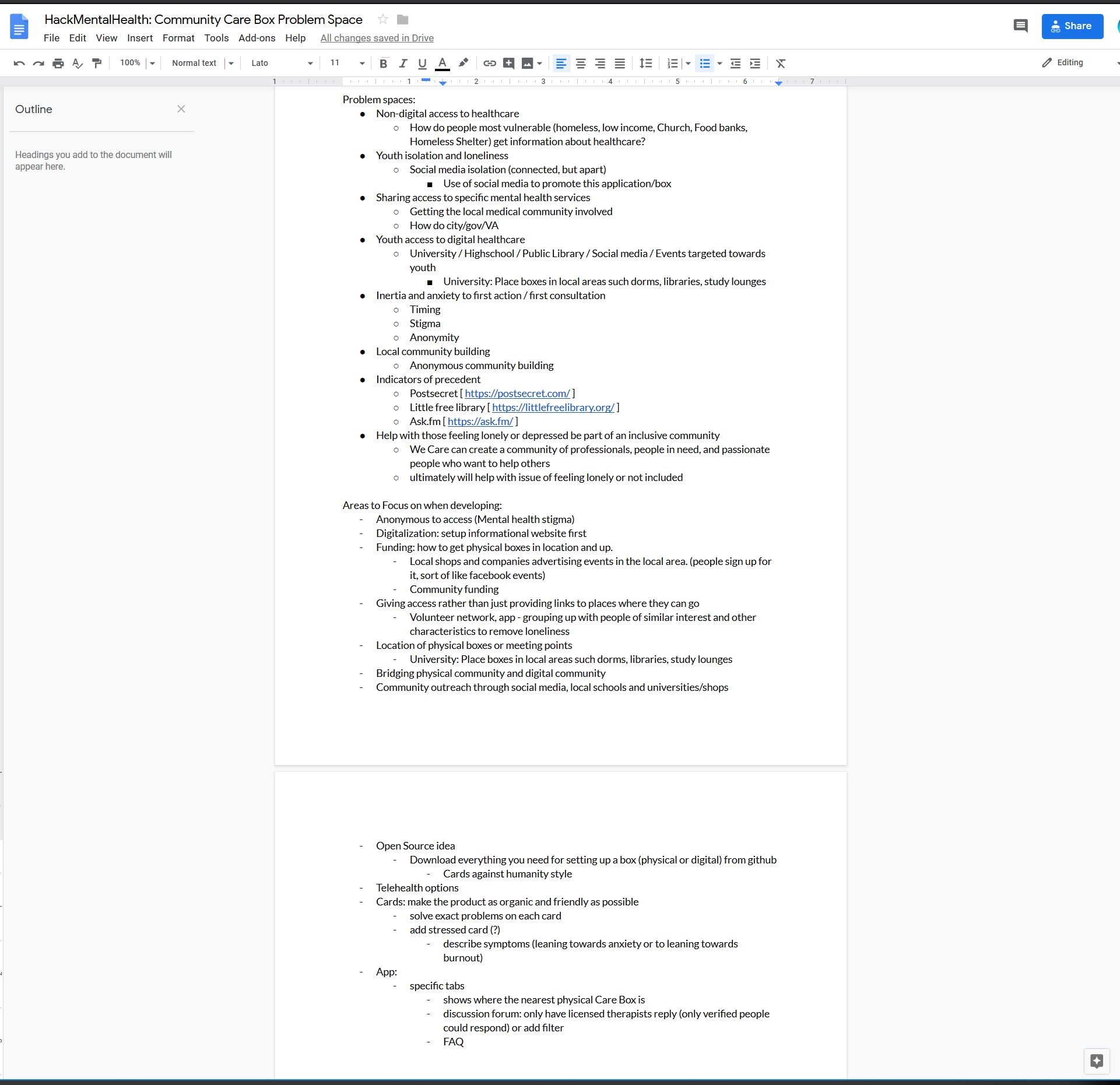
Design Sprint
Given that we only had about 24 hours to prototype a solution that was likely going to include both a digital and physical solution, I led a 'lightning sprint' that condenses the traditional Google Ventures Design Sprint into a few hours for a hackathon. This was a technique I had learned from DesignMap a few years prior for a 'Healthy Aging' design challenge.
Instead of doing Crazy 8's to sketch design ideas, we compressed down to 'Crazy 2's' where we each made two design ideas for physical and digital prototypes. After some rudimentary Dot Voting, we had our winning idea.
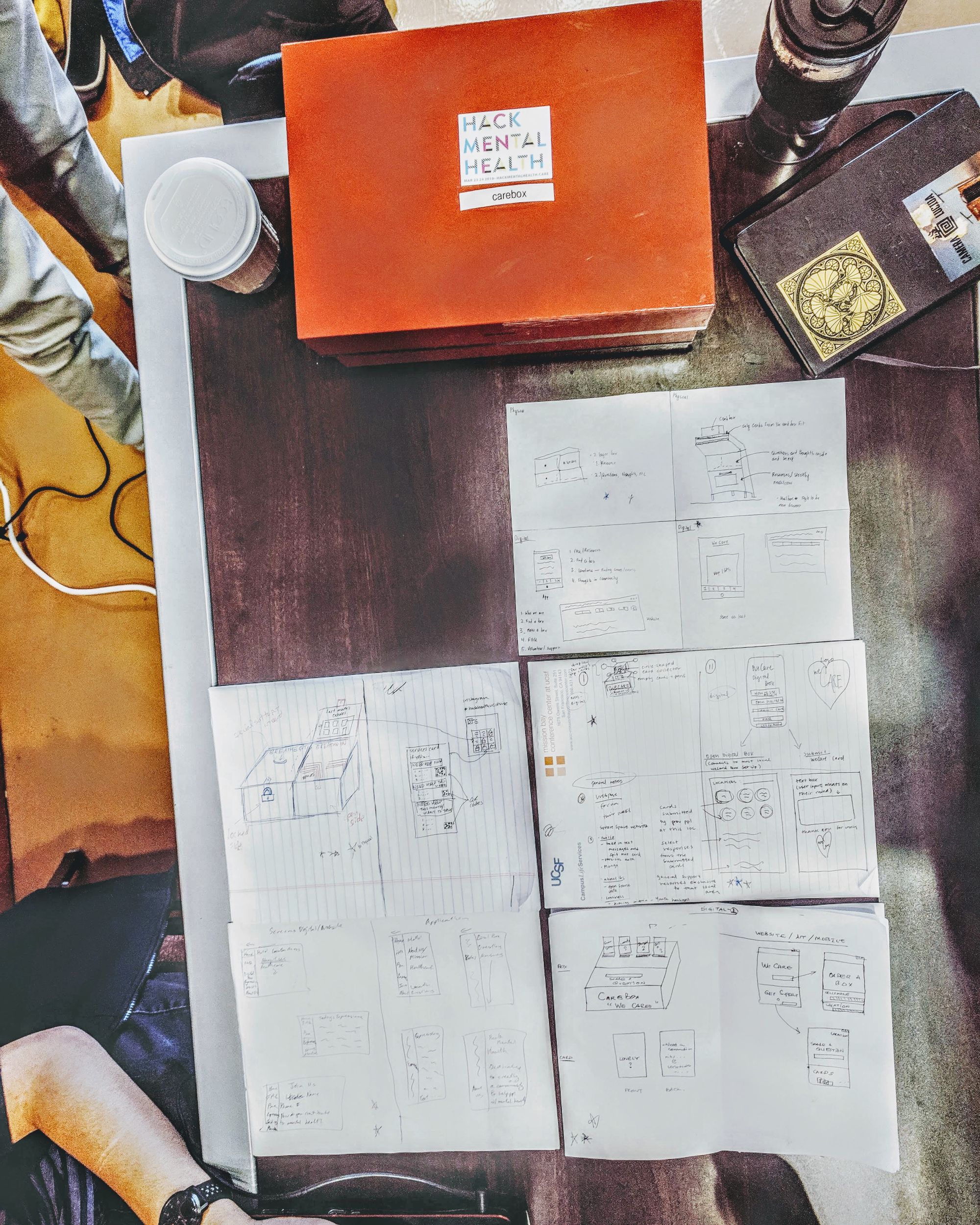
The winning design idea had a lightweight physical box that both gave free mental health information and provided the option for users to anonymously submit content. All interaction with the box was done with cards, and if the user has access and chooses to do so, can use QR codes to get a digital version of the card or submit content to the box via SMS text messages. However, the digital experience is optional and the box provides its full utility in its physical form.
After fleshing out the winning sketch a bit more, we went right ahead creating a very rough physical prototype before sunset:

We decided to promote the idea that this box is interactive by indicating the user can 'breathe out' or 'breathe in'.
- 'Breathe Out' cards are simply a blank canvas, allowing people to anonymously exhale and write any form or self-reflection or express a vulnerability. These cards go into a one-way slot and are processed once a week, after which the most poignant ones are displayed near the box and posted on the box's community website.
- 'Breathe In' cards have prompts such as 'Feeling Lonely?' on one side, and localized content and services on the other side addressing the prompt. There are several copies of each type of 'Breathe In' card, encouraging users to take one with them. One special 'Breathe In' card contains instructions for how to interact with the box.
- The cards' localized content and the box's construction, placement, and ongoing upkeep is managed by a local community advocate. The template for the box and cards is free to download/print and build for anyone.
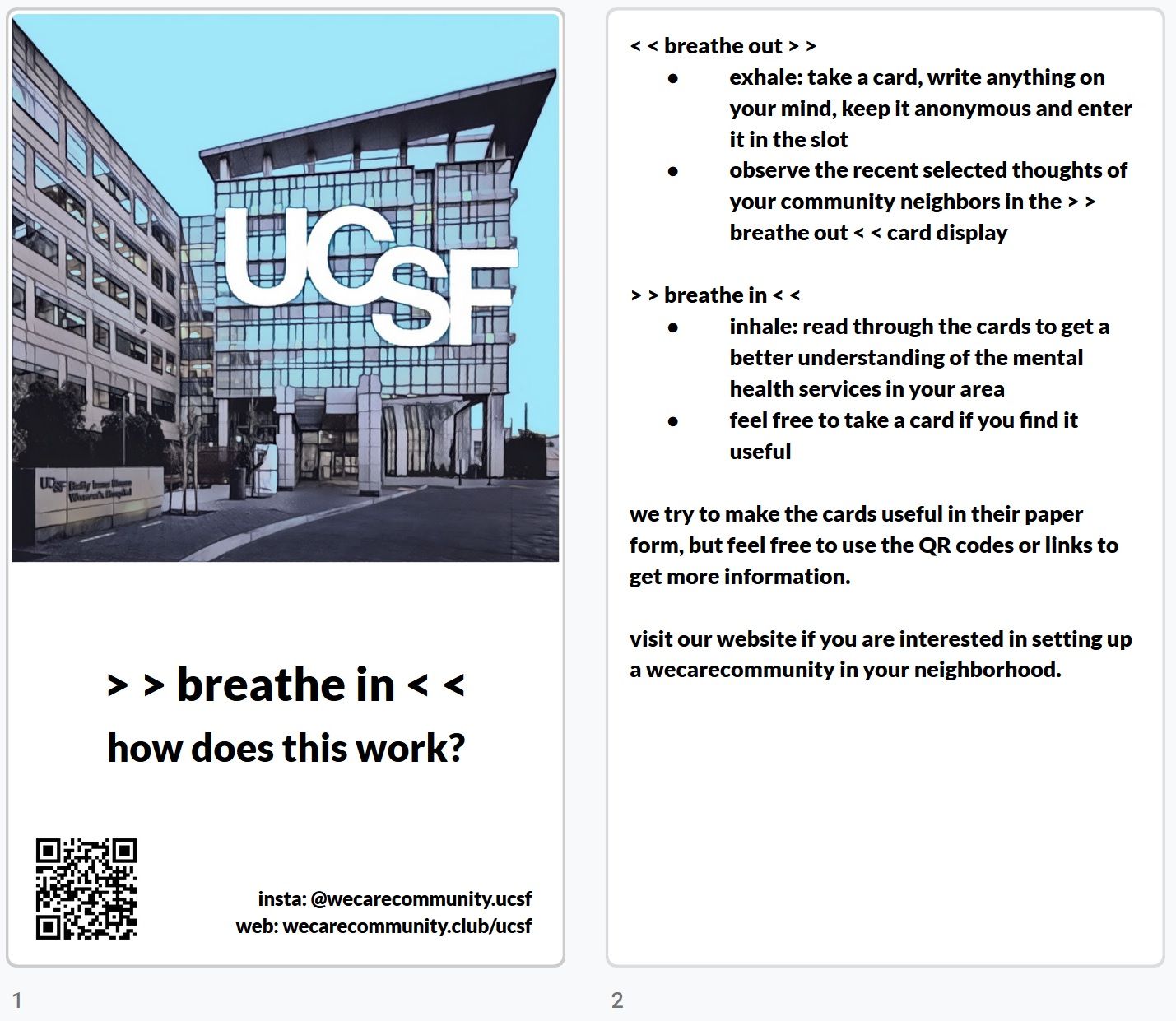
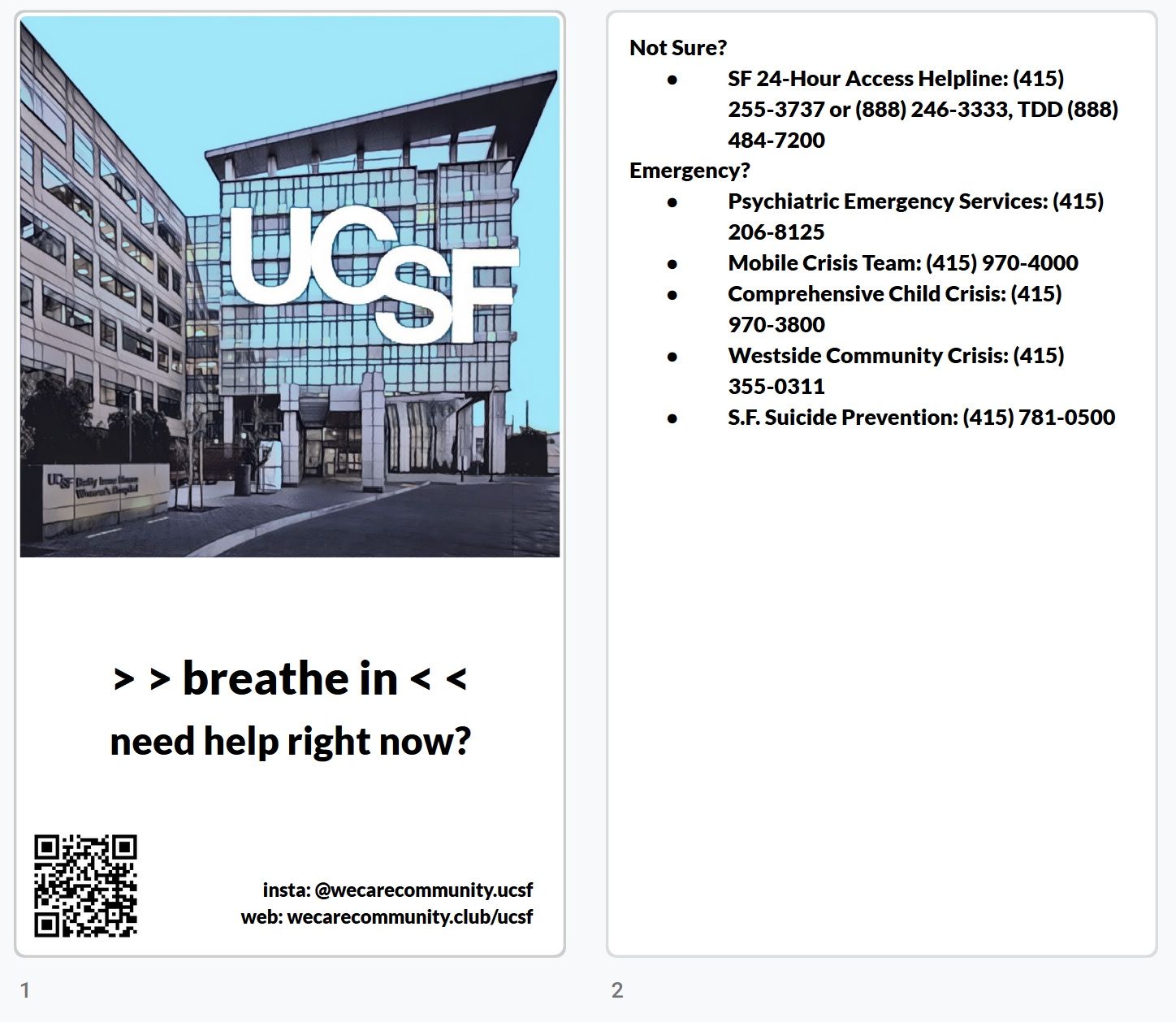
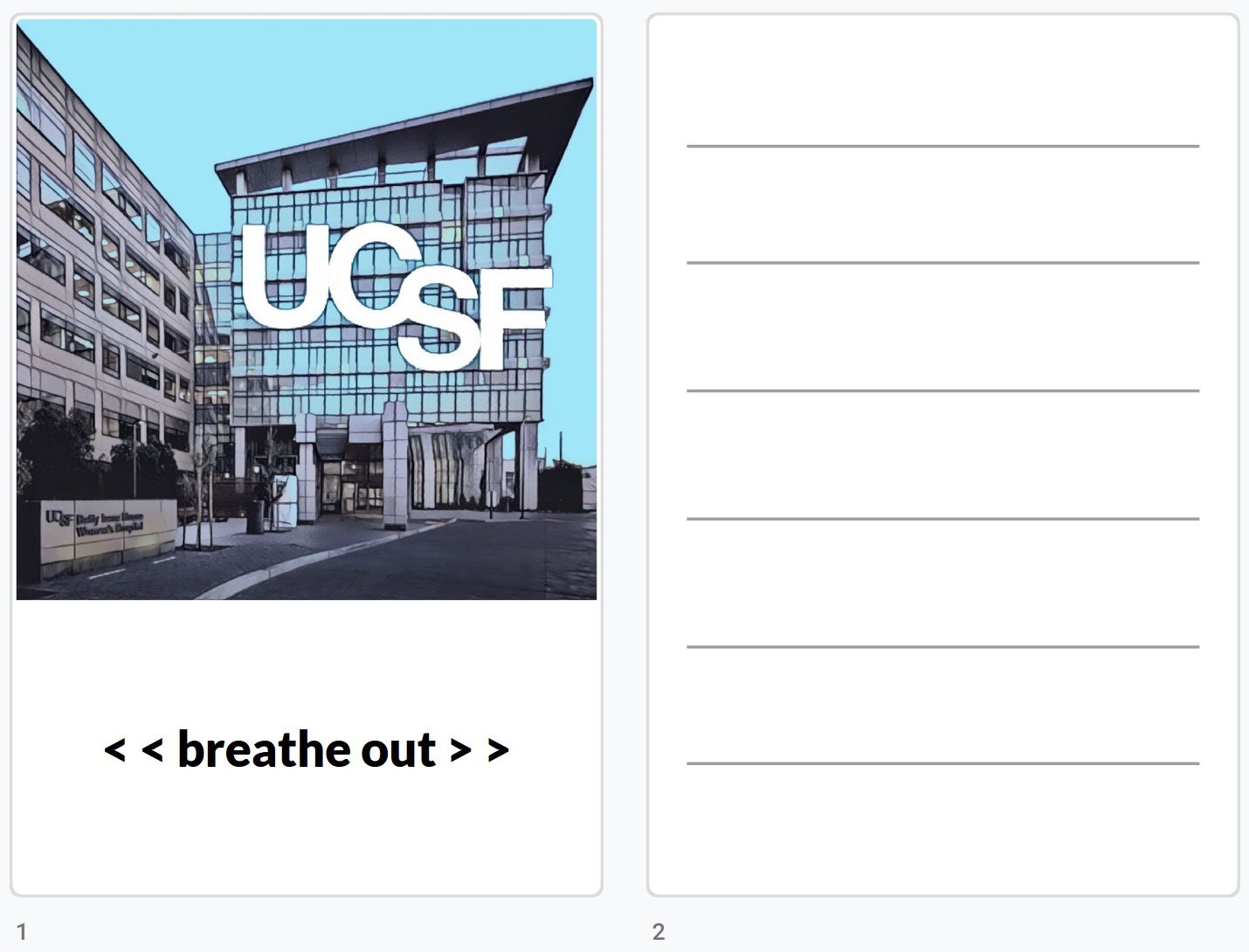
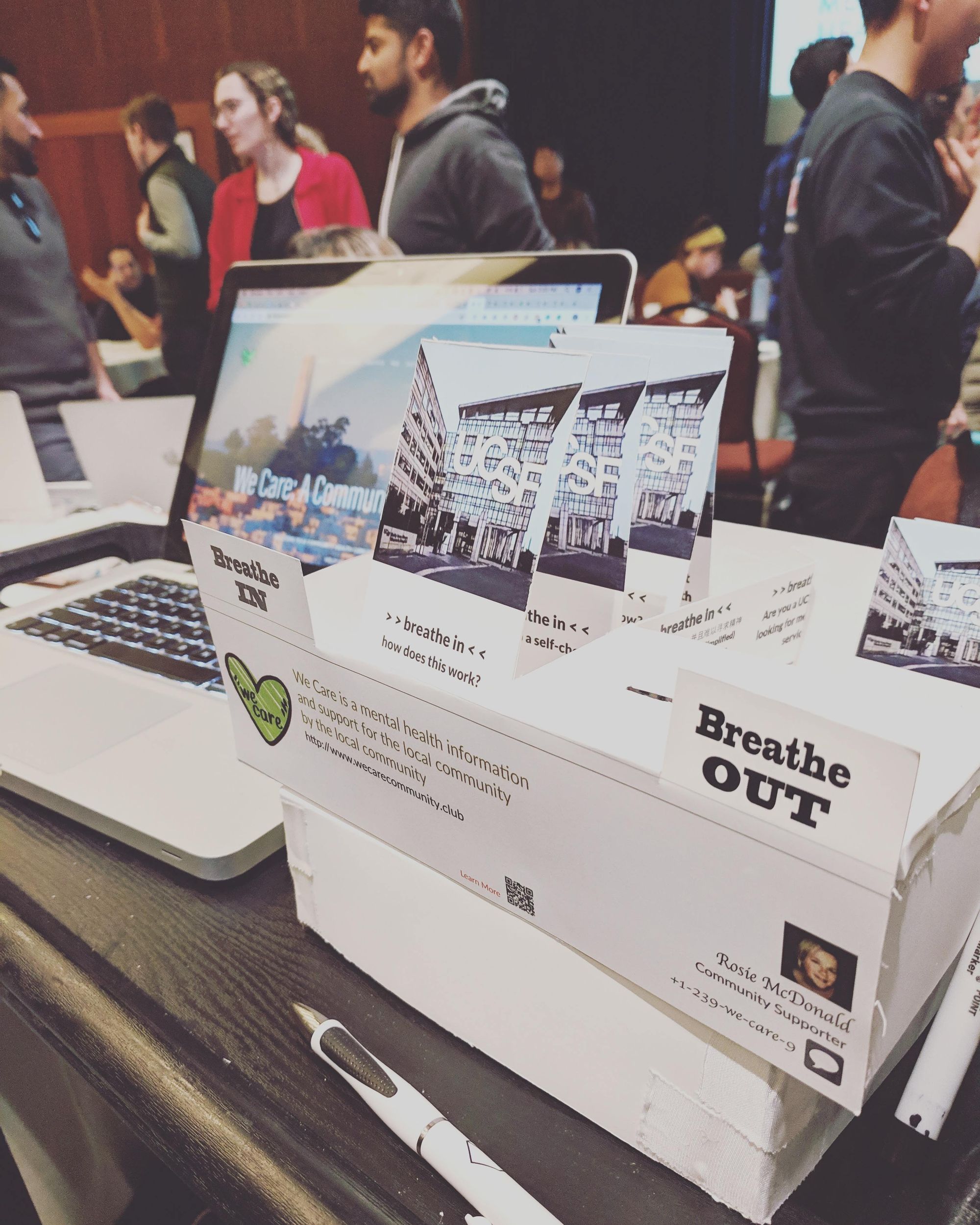
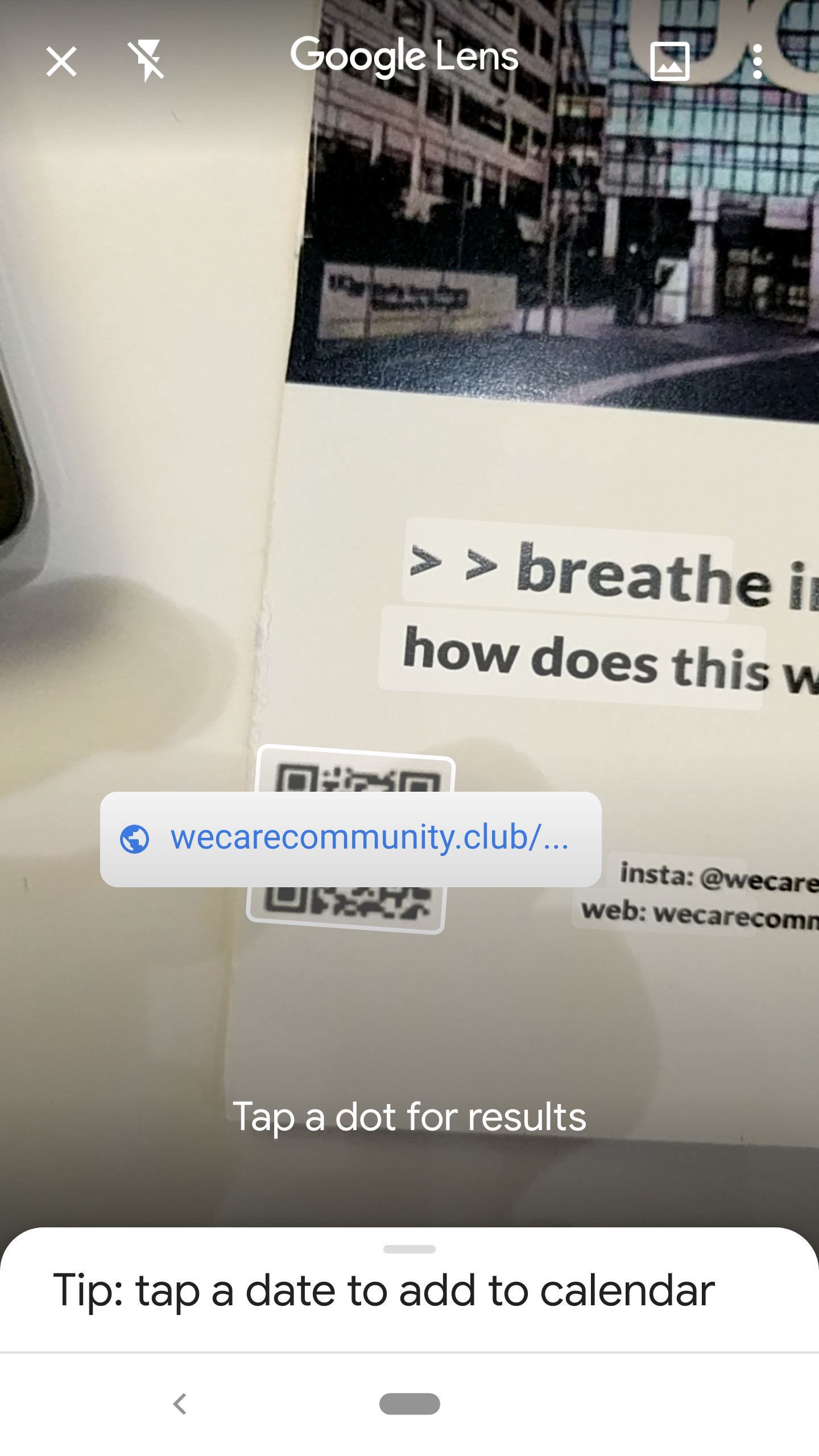
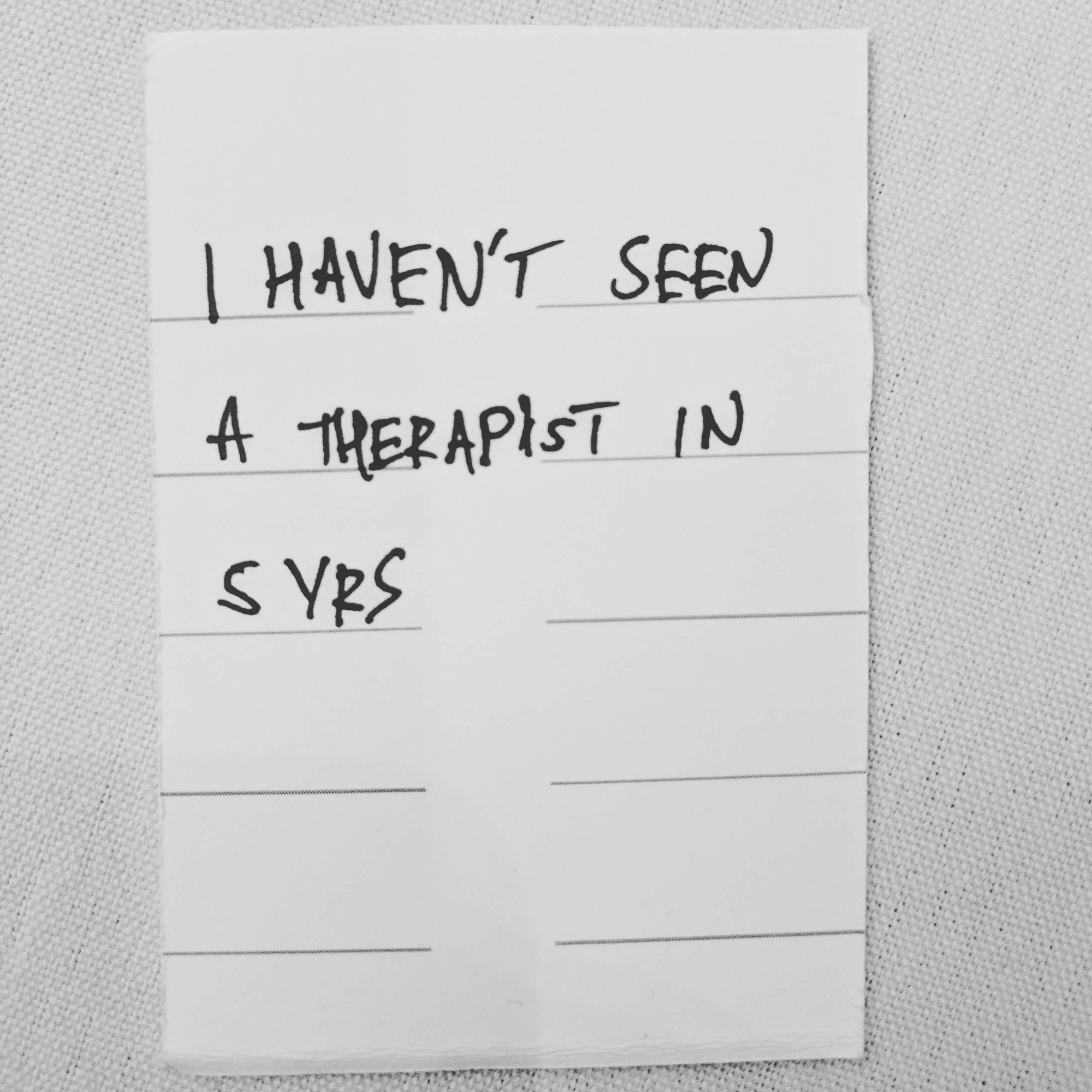
Next Steps
When you are not alone, you know you there is something there. Other projects in similar spaces include:
- Sidewalk Talk's free community pop-up 'listening stations' have therapists volunteer time to engage with their local community members with face to face conversations
- #100kMasks challenge by EverForwardClub has members mail or digital send in cards with two sides: a visual 'back of mask' side showing the external face we show to the world and an open ended 'back of mask' side allowing for judgement free, anonymogrus, self-expression and vulnerability
- Kelly Posner Gerstenhaber, PhD from The Columbia Lighthouse Project came on Democracy Now! just days after our hackathon and touched on the Columbia Protocol, an effort to engage with people who are suffering from acute mental health issues
Our next steps include:
- trialing the box more in our own local community
- creating a more robust print template and material for the box and cards
- creating a repeatable way to host the website for each community
- spreading the word!
Follow the project on Instagram: https://www.instagram.com/wecare.hackmentalhealth/
